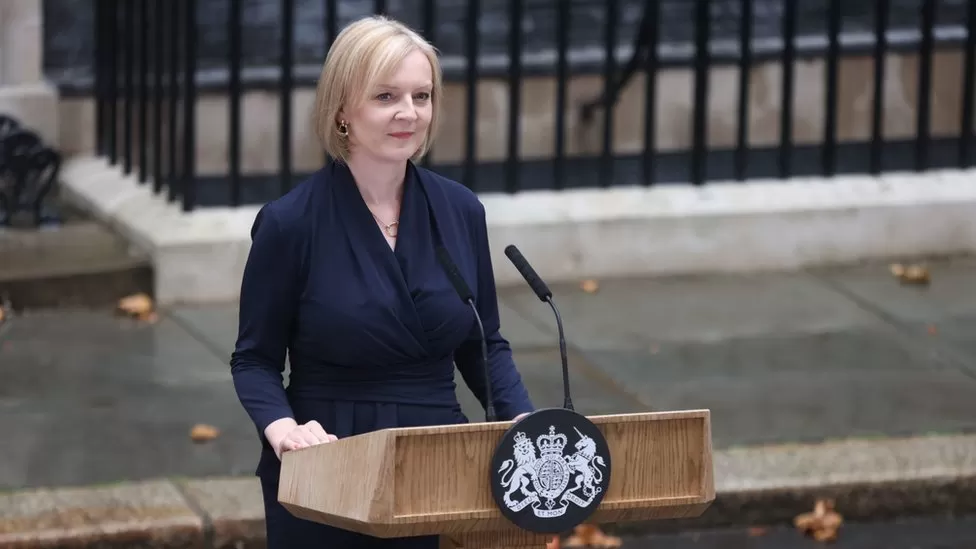New Prime Minister Liz Truss will unveil plans to limit energy bill rises on Thursday, spending billions to protect people from soaring prices. Typical household energy bills could be capped at around £2,500 a year, with firms also likely to get some relief. It is unclear how long the support will last, but the government is expected to borrow at least £100bn to pay for it. Currently, a typical household’s gas and electricity bills are due to rise from £1,971 to £3,549 in October. Experts and charities have warned that without help on soaring energy price bills, lives will be at risk this winter, as people struggle to afford basic day-to-day living costs.
The increase in consumers’ bills follows sharp rises in wholesale gas largely due to the conflict in Ukraine, which has reduced supplies of Russian gas. Ahead of the announcement, Ms Truss said she knew families and firms were worried about “how they are going to make ends meet this autumn and winter”. “Putin’s war in Ukraine and weaponisation of gas supply in Europe is causing global prices to rise – and this has only made clearer that we must boost our long-term energy security and supply. “We will take action immediately to help people and businesses with bills but also take decisive action to tackle the root cause of these problems so that we are not in this position again.” To limit the amount customers’ bills go up, the government is expected to compensate energy firms for the difference between the wholesale price for gas and electricity they pay and the amount they can charge customers.

Customers will not be expected to repay the help, with the huge support package due to be funded by the government borrowing about £100bn. The final sum will depend on the cost of energy in the international energy markets – which can be extremely volatile as well as whether additional support is offered to the most vulnerable households. But Labour said the government should extend a windfall tax on gas and oil company profits to pay for the package – with leader Sir Keir Starmer warns that working people will be footing the bill for “vast” energy firm profits under her plans.
At PMQs, Sir Keir told Ms Truss “energy producers will make £170bn in excess profits over the next two years”. “Is she really telling us that she is going to leave this vast excess profits on the table and make working people foot the bill for decades to come?” the Labour leader asked. Unlike households, businesses are not protected by an energy price cap. Many are currently facing even sharper rises in energy bills than households, which could lead to firms going under or cutting their wage bills by firing staff. But firms are also expected to receive some relief under the new plan.
The system to support business could be more complex than that for households and is likely to be reviewed more often. According to reports, it could see the government force energy firms to offer specific reductions on the unit price of the energy used by firms. Business groups have welcomed the plan, although the British Chambers of Commerce warned “it remains to be seen” whether it goes far enough in providing the support that firms need. If businesses are included, that could see the overall cost of the government support package rise to well above £100bn. The cost of UK government borrowing is currently at its highest level for eight years, with the yield on 10-year bonds rising above 3%. The rise in yield indicates investors’ anticipation that the government will have to borrow more in future. It also means any future borrowing will be more expensive.
Economic outlook
However, some economists have suggested that plans to cap energy bills could mean that increases in the cost of living will peak earlier and be “significantly lower” than previously forecast. The cost of living is currently rising at its fastest rate in 40 years, at 10.1%, largely driven by the sharp rise in energy prices. Investment bank Goldman Sachs said that a cap on household energy bills could see inflation peak at 10.8% in October, rather than the 14.8% forecast before. It also sees prices falling more quickly as well, with inflation slowing to 2.4% by December 2023.
The Bank of England also said the plan could slow rising prices. However, both cautioned that there was uncertainty around what exactly the plan will look like and what would happen once any cap is lifted. Economists also expect the UK to fall into a recession despite Ms Truss’ energy support plan – albeit a shorter and less severe one. The Bank of England predicted the UK will enter a recession later this year – with the Bank’s Governor Andrew Bailey saying there is little that can be done to stop that from happening.
![]()





